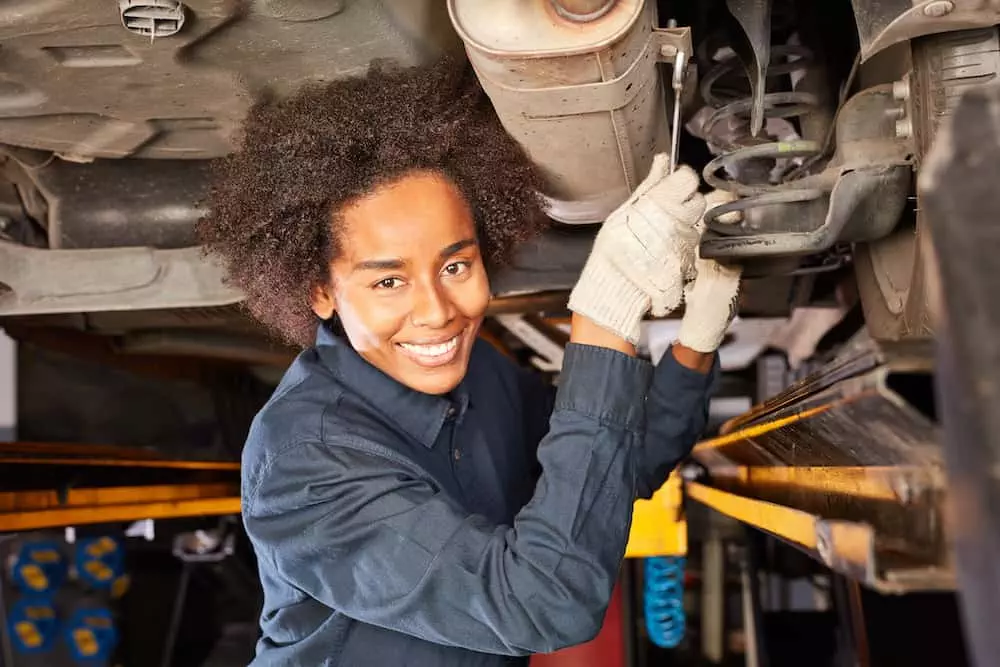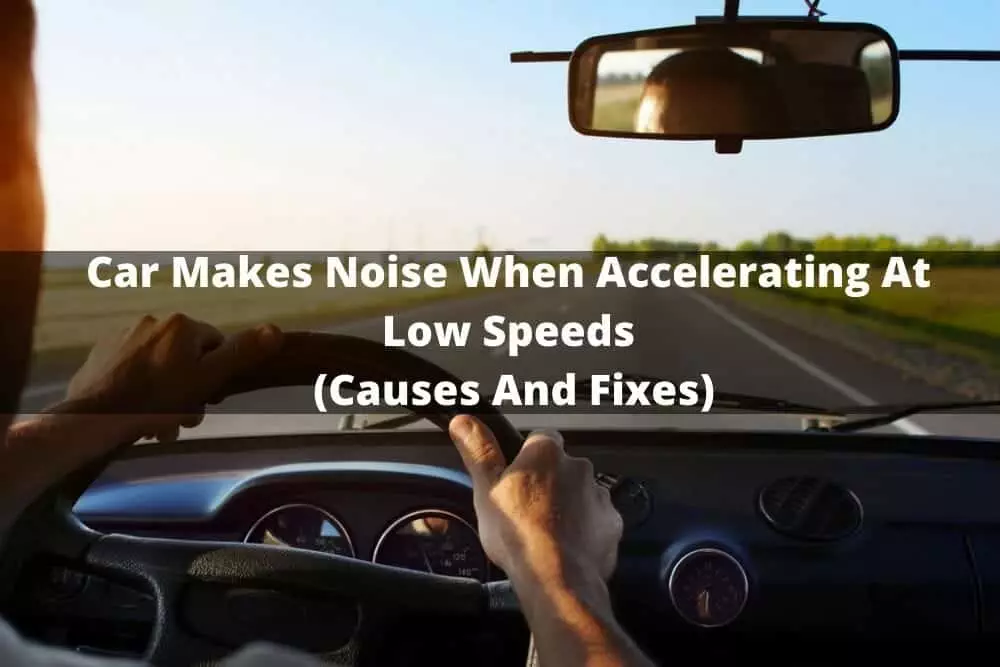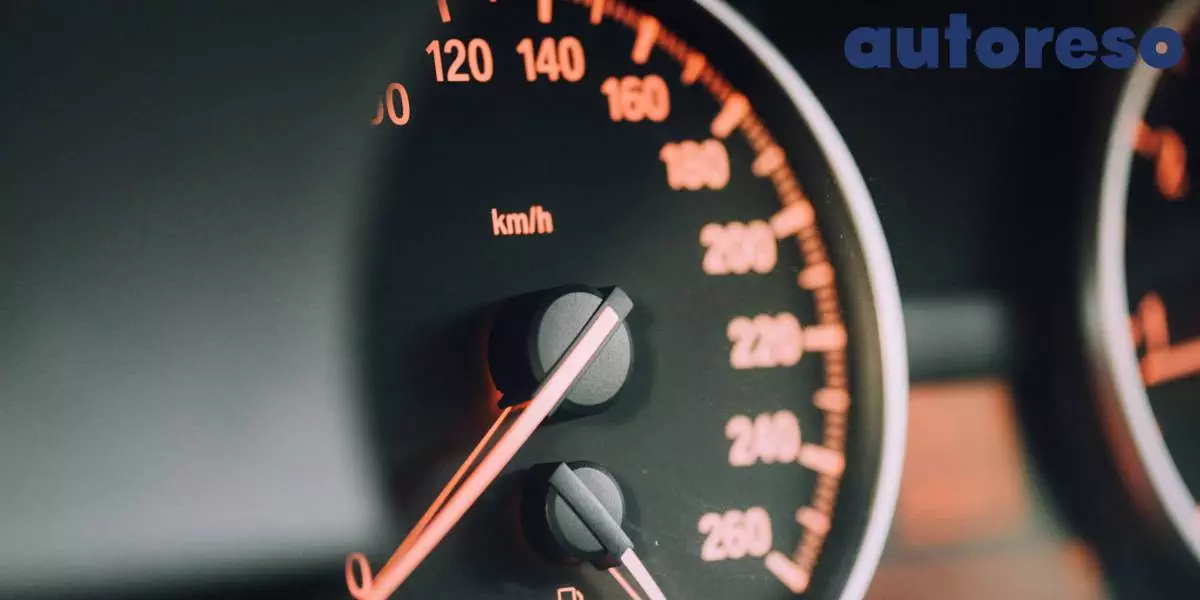If your car makes noise when accelerating at low speed, it can be a cause for concern. The noise can be an indication of various underlying issues that need to be addressed promptly. In this article, we will explore the possible causes of this noise, how to identify its source, and the steps you can take to resolve the problem.
Possible causes of noise when accelerating at low speed
Worn-out or damaged belts
One of the common causes of noise during acceleration at low speed is worn-out or damaged belts. The belts in your car’s engine system, such as the serpentine belt or timing belt, can become worn or damaged over time.
When these belts are not functioning properly, they can produce a squealing or screeching noise when you accelerate. Regular inspection and replacement of worn-out belts can help prevent this issue.
Issues with the exhaust system
Another possible cause of noise during acceleration at low speed is a problem with the exhaust system. A loose or damaged exhaust pipe, muffler, or catalytic converter can create a rattling or hissing noise when you accelerate.
It is important to address these issues promptly, as a malfunctioning exhaust system can affect your car’s performance and fuel efficiency.
Transmission problems
Problems with the transmission can also lead to noise during acceleration at low speed. Issues such as low transmission fluid, worn-out clutch plates, or a faulty torque converter can cause grinding or whining noises when you accelerate.
Regular maintenance and fluid checks can help prevent transmission problems and ensure smooth acceleration.
Engine misfire
An engine misfire can be another potential cause of noise during acceleration at low speed. When one or more cylinders in your car’s engine fail to ignite properly, it can result in a knocking or popping sound.
This issue can be caused by a variety of factors, including faulty spark plugs, a malfunctioning fuel injector, or a problem with the ignition system. Regular tune-ups and addressing any engine-related issues promptly can help prevent misfires.
Wheel bearing issues
Faulty wheel bearings can also contribute to noise when accelerating at low speed. Wheel bearings are responsible for reducing friction between the wheel hub and the axle, allowing smooth rotation.
When these bearings become worn or damaged, they can produce a humming or grinding noise. Regular inspection and maintenance of wheel bearings can help prevent this issue. Replace them if needed!
Identifying the source of the noise
Listening for specific sounds
To identify the source of the noise, it is important to listen carefully while driving. Pay attention to the type of sound, its location, and when it occurs. Is it a squealing, rattling, grinding, or popping noise? Does it come from the engine, exhaust system, or wheels? Understanding these details can help narrow down the possible causes.
Checking for visible signs of damage
In addition to listening, visually inspecting your car can provide valuable clues. Look for any visible signs of damage, such as loose belts, rusted or damaged exhaust components, or leaking fluids. These signs can help pinpoint the source of the noise and guide you in the right direction for repairs.
Consulting a mechanic for a professional diagnosis
If you are unable to identify the source of the noise or if you are unsure about the necessary repairs, it is recommended to consult a qualified mechanic. A professional diagnosis can provide a more accurate assessment of the issue and ensure that the appropriate repairs are carried out.
Steps to take when experiencing noise during acceleration
To address a car making noise when accelerating at low speed, you can follow these steps:
- Identify the Noise Type: Pay attention to the type of noise (e.g., clicking, grinding, squealing) and when it occurs (during acceleration, while turning, etc.). This will help in diagnosing the issue.
- Check the Exhaust System: Inspect the exhaust system for loose or damaged components that might be causing noise. Tighten any loose parts or repair/replace damaged ones.
- Inspect the Drive Belt: Check the drive belt for signs of wear, damage, or misalignment. A damaged belt can produce squealing or whining noises. Replace it if needed.
- Inspect CV Joints and Axles: Worn or damaged Constant Velocity (CV) joints or axles can produce clicking or popping sounds. Have a mechanic inspect and replace them if necessary.
- Check the Brakes: Squealing or grinding noises may indicate brake issues. Check the brake pads, rotors, and calipers for wear and damage. Replace or repair them as needed.
- Examine Wheel Bearings: Worn wheel bearings can create a humming or grinding noise. Have a professional inspect and replace them if required.
- Inspect the Transmission: If the noise seems to come from the transmission, have a mechanic check for any issues, such as low transmission fluid or worn-out components.
- Check the Suspension System: A loose or damaged suspension can create clunking or banging noises. Have a mechanic inspect and repair the suspension components.
- Address Engine Issues: Internal engine problems like worn-out spark plugs, malfunctioning valves, or issues with the timing belt can cause unusual noises. Get a thorough engine inspection and address any problems found.
- Visit a Mechanic: If you’re unable to identify or fix the issue on your own, it’s advisable to take your car to a qualified mechanic for a comprehensive diagnosis and repair.
Always prioritize safety and, if unsure, consult a professional mechanic to address any issues with your car.
Regular maintenance and inspections
To prevent noise during acceleration, it is crucial to follow a regular maintenance schedule. This includes routine inspections of belts, exhaust system components, transmission fluid levels, and engine performance. By addressing any potential issues early on, you can avoid costly repairs and ensure a smooth driving experience.
Addressing any identified issues promptly
If you notice any unusual noises during acceleration, it is important to address them promptly. Ignoring the problem can lead to further damage and potentially more expensive repairs.
Whether it’s replacing worn-out belts, repairing the exhaust system, or resolving transmission or engine issues, taking immediate action can help maintain the performance and longevity of your car.
Following manufacturer’s recommendations for maintenance
Lastly, it is essential to follow the manufacturer’s recommendations for maintenance. This includes adhering to the recommended service intervals, using the correct fluids and parts, and following any specific guidelines provided by the manufacturer.
By doing so, you can ensure that your car operates optimally and minimize the risk of noise during acceleration.

For car enthusiasts, grab top-quality tools and equipment at the link below:
Conclusion
Experiencing noise when accelerating at low speed can be a cause for concern, but by understanding the possible causes and taking appropriate action, you can address the issue effectively. Regular maintenance, prompt repairs, and following the manufacturer’s recommendations are key to maintaining a quiet and smooth driving experience.
Remember, if you are unsure about the source of the noise or the necessary repairs, it is always best to consult a professional mechanic for a thorough diagnosis and resolution.
FAQs
-
Why does my car make noise when I step on the gas?
There could be several reasons why your car makes noise when you step on the gas. It could be due to a problem with the exhaust system, such as a leak or a damaged muffler. It could also be caused by issues with the engine, such as a worn-out belt or a faulty fuel injector. It’s best to have a professional mechanic inspect your car to determine the exact cause of the noise.
-
Why does my car make a lot of noise when accelerating?
If your car makes a lot of noise when accelerating, it could be a sign of a problem with the exhaust system. A leak or a damaged muffler can cause excessive noise. Another possible cause is a problem with the engine, such as a worn-out belt or a faulty fuel injector. It’s recommended to have your car checked by a qualified mechanic to diagnose and fix the issue.
Originally posted 2023-05-14 23:52:02.




